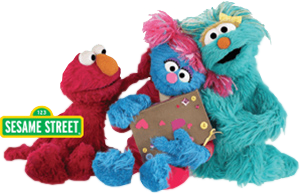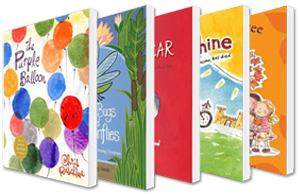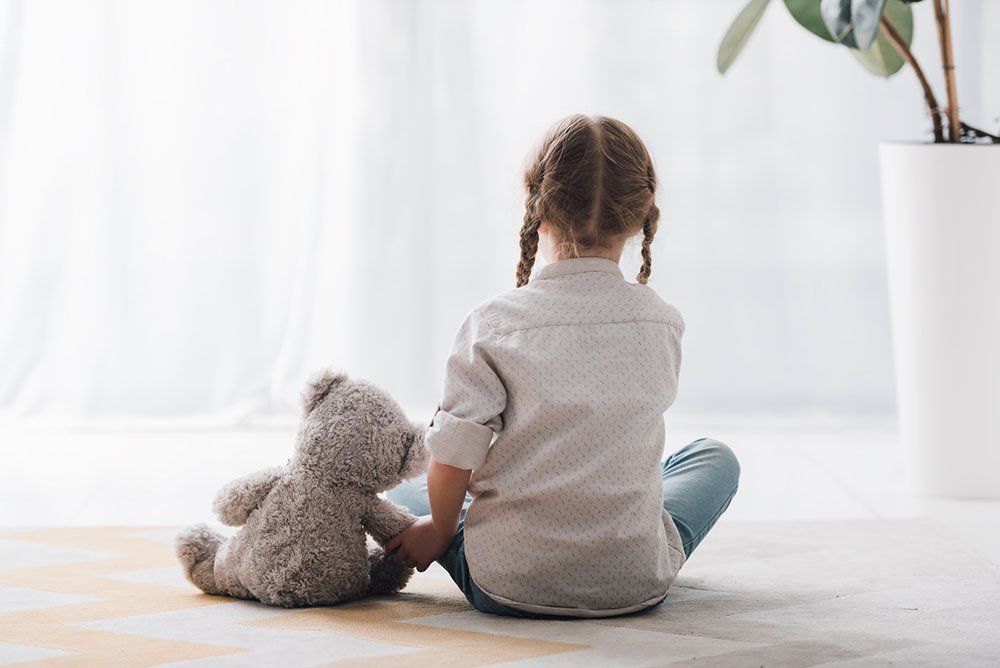Children & Grief
Talking to Children & Teens
When a loved one dies, it can be difficult to know how to help kids cope with the loss, particularly as you work through your own grief. By being open and honest, encouraging communication, and sharing your own feelings, you and your children cope with painful times and begin your healing journey together.
Childhood & Grief
A child's ability to understand death varies according to his or her age.
Infants & Toddlers
Infants and toddlers feel a loss through the absence of a loved one, interruption in their regular routine, and through the grief and stress they sense in their parents or other family members. Make sure to spend extra time holding and cuddling the child, and try to keep them on a regular schedule as much as possible.
Younger Children
Younger children might have trouble understanding the permanence of death or differentiating between fantasy and reality. They also might believe the death of a loved one is a form of punishment for something the child did. When you talk to young children about death, make sure to use concrete language, avoid euphemisms, and reassure the child that the death is not a consequence of something he or she did.
Older Children
Older children are beginning to understand the permanence of death, and might associate it with old age or personify it in terms of frightening images or a cartoonish boogeyman. They often know more about how the body works, and have more specific questions. It's important to answer their questions to the best of your ability, and provide as much specific, factual information as possible. Try to keep them to regular routines, and give them opportunities for the constructive venting of feelings and grief.
Teenagers
Teenagers process grief more like adults, experiencing anger and sadness as they begin to cope. Don't feel disappointed if it seems that they may want to talk more to their friends than to parents, this is normal and can help them to share their feelings and heal. Because their grief is similar to that of an adult, a teenager may take longer to recover from a loss than a younger child. Questions may come up about mortality and vulnerability, and your role is to empathize with them, listen to their concerns, and remind them that their feelings are normal and things will get better with time.
Tips for Talking to Children about Death
- Use concrete terms when talking about death. Don't shy away from the words "death" and "dead". While it might seem gentler to use phrases like "passed away" or "went to sleep", this can be confusing for a child and lead to difficulty understanding the finality of death.
- If your child doesn't understand what death means, try explaining it in terms of the body, such as "Aunt Rachel's body stopped working".
- Encourage questions, and answer them to the best of your ability.
- Be honest when you don't know the answer. An honest, "I just don't know the answer to that one", can be more comforting than a made-up answer or an answer you don't believe.
- Your child will probably be dealing with a lot of difficult emotions, some of which he or she may not have experience before. Give your child a safe space to express his or her emotions, and spend time talking openly about his or her feelings and thoughts.
- Remember that recovery is an ongoing process. Young children often experience periods of normalcy which interrupt their intense grief, and the alternating periods might shift over the course of hours, days, or even years.
- Listen to their fears and reassure them. Children can develop fears as the result of a loved one's death. Whether it's an irrational fear linked to the cause of death, a fear of losing you or another family member, or a fear that something they did caused the death to happen, spend time comforting your children and helping to assuage their fears.
- If your family holds particular religious beliefs about what happens after you die, you can share them with your child as a source of comfort (but don't introduce it too soon, as it might be too abstract for kids under age 5). An alternate approach is to let them decide for themselves, by saying something like, "No one knows for sure. Some people think you go to heaven, while others believe people come back on earth as different creatures. What do you think?"
- Don't hide your own grief. It's important for children to know that adults cry when they're very sad, too, and that their feelings of grief are normal and shared by others. Let them know that you're okay, and find comfort together by sharing your feelings and remembering the loved one who is gone.
- If your child seems to be struggling especially hard with a loss, or if grief is seriously interfering with their day-to-day activities, routines, and outlook on life, don't be afraid to seek professional help or therapy when it's needed.
Helpful Resources

When Families Grieve™
This guide was created by Sesame Workshop, the educational organization behind Sesame Street. It explores children's understanding of death and offers information about communicating, ideas for coping together, and ways to move forward with your children after a loss.

Helpful Children's Books
This list from Allina Health recommends children’s books that deal with death and grief. There are suggestions for children of all ages, from preschool to age 12. They also have books for different types of losses, such as the loss of a parent, sibling, grandparent, friend, or pet. With these books, you can start a meaningful conversation with your child and help them understand their feelings

More Advice
Here you'll find a Huffington Post article by Judith Acosta containing advice and guidance from her book Verbal First Aid, which counsels parents on ways to help kids heal from fear and pain in a variety of situations, including the death of a loved one. If you find the advice in the article helpful, you may want to read her book for even more insight.

Highmark Caring Place
The Highmark Caring Place, A Center for Grieving Children, Adolescents and Their Families, is a safe place where grieving children and families can come together and be with others who understand what they’re going through. An essential community resource, the Caring Place offers services at no charge to grieving families from throughout the community.


